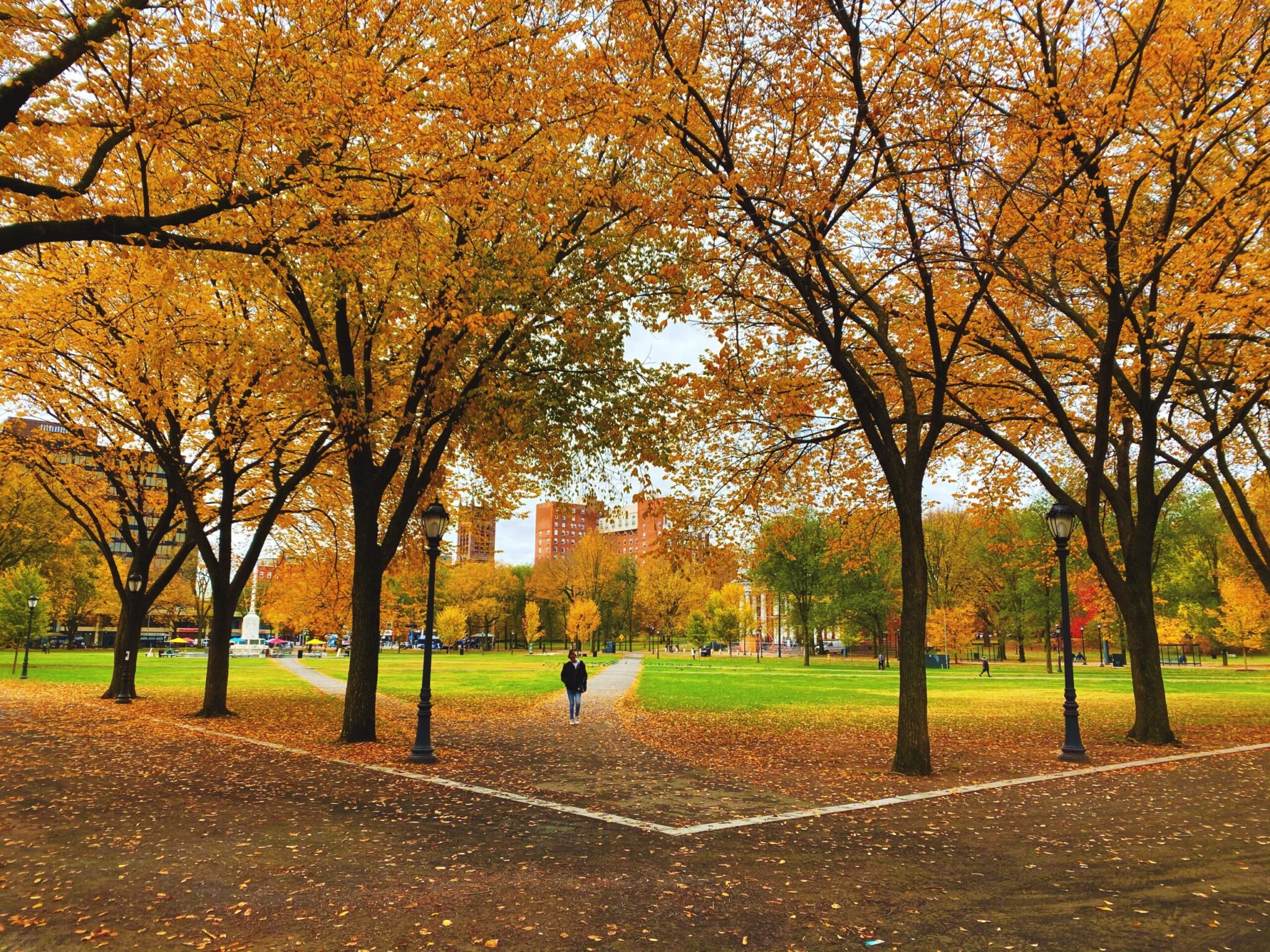Cultural houses hold teach-in on policing
Speakers lecture on history of policing in America and abolition alternatives to policing.

Vaibhav Sharma, Senior Photographer
The cultural houses at Yale held a joint event on Sunday afternoon to discuss the history of policing in the United States, with speakers commenting on over-policing of Asian, Black, LGBTQ+, Latine and Indigenous communities.
Hosted by the Asian American Cultural Center, La Casa Cultural, the Afro-American Cultural House and the Native American Cultural Center, the event drew over 30 attendees to the Beinecke Plaza and later the Berkeley Thomas Mendenhall Common Room to learn about the history of policing and calls for action for changes within the New Haven and Yale police departments.
“I think it’s really important post-pandemic to be doing things that bring the cultural centers together,” Madeline Gupta ’25, president of the Yale American Indian Science and Engineering Society, said. “We were really interested in hosting an event that would highlight solidarity between all the cultural centers and I think something that really impacts the cultural centers is policing.”
The organizers said that the initial idea for the teach-in came after the Yale police union passed out “survival guide” leaflets to first year students on move-in day in August.
Community members and University and city officials criticized these leaflets as “fear-mongering.”
“A lot of people are [Peer Liaisons] within the cultural centers, and so [first-years] have questions about the safety in New Haven,” Mara Gutierrez ’25, co-chair of the Native and Indigenous Students Association at Yale, said. “[We are] just making sure that everything is contextualized in the proper way so that it does not seem like the scary New Haven that the pamphlets created for the first years.”
The speakers at the event discussed the merits of abolition, restorative justice, mutual aid and harm reduction and suggested ways to implement them into the New Haven community.
The teach-in emphasized the need for an abolition effort that includes reimagining “current policing and prison structures” and “unlearning false safety narratives rooted in anti-Blackness and classism” by engaging in harm reduction and mutual aid practices, according to pamphlets handed out at the teach-in.
Organizers also reviewed the history of policing in America, discussing topics such as slave patrols, segregation laws and mass incarceration during the war on drugs and the war on poverty, as well as the over-policing of Indigenous communities and disabled peoples.
“I really enjoyed the perspective of people from the LGBT community, and the Indigenous community, and the Asian American community,” Tenzin Walker ’27 told the News. “And just all of these different underrepresented groups that we typically focus on in the conversation about over-policing. It’s very much an issue of all of these marginalized groups.”
In addition to speakers from the cultural centers, Elisio Acosta and Kirill Staklo from PeerPride New Haven spoke about the consequences of unnecessary police intervention or hospitalization.
PeerPride is an organization that works to create peer and crisis support while advocating for equity in healthcare, food access, education, technology and mental health services.
“When it comes to getting resources for people in our communities, it’s important to do the appropriate research and make sure that we’re moving away from resources that engage in non-consensual interventions,” Staklo said. “[that] can result in … people not having access to their loved ones losing their jobs being slapped with very expensive bills that result in losing housing, it can result in people being assaulted and traumatized.”
In New Haven, the New Haven Police Department issued a new use of force policy in Dec. 2021. In Jan. 2022, the NHPD faced criticism for promoting an officer who repeatedly punched an unarmed arrestee.
NHPD Assistant Chief David Zannelli told the News that NHPD is working to only use force when “absolutely necessary.”
“One of the things I think is very central to what we do here is, you know, how we deescalate and communicate with the community,” Zannelli said. “So, you know, we use force only when absolutely necessary, and we rely on de-escalation. And we’ve had a five year low and civilian complaints, and uses of force because of our emphasis on de-escalation.”
After discussing potential ways to reform policing in America, the teach-in focused in on the history of policing in New Haven and especially on the Yale Police Department.
The presentation at the teach-in as well as the pamphlet provided at the event criticized the YPD for being ineffectual.
“The YPD is not effective, even according to its own definition of success, and Yale’s public safety budget would be put to better use being reinvested in New Haven,” the pamphlet wrote. “By claiming that the YPD keeps us safe, the YPD makes us even more complicit in its harm toward the New Haven Community. We must collectively fight to keep us (New Haveners and Yalies) safe from violent, punitive systems.”
Ishikaa Kothari ’25, a student organizer for the teach-in, called for the redistribution of Yale’s public safety budget.
Other activists in New Haven and at Yale, led by Black Students for Disarmament at Yale, have previously advocated for the abolition of YPD.
“The public safety budget is $40.3 million and the amount it donates to the New Haven community is $22.5 million,” Kothari said. “Yale plays a great deal of contributing to the wealth disparity here. And then at the same time, its over policing, causing violence and displacement.”
Yale Police Chief Anthony Campbell ’95 DIV ’09 declined to respond to a request for comment.
The YPD was established in 1894.







